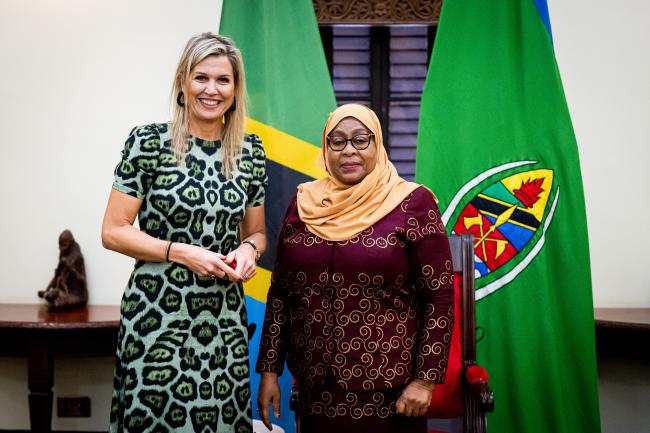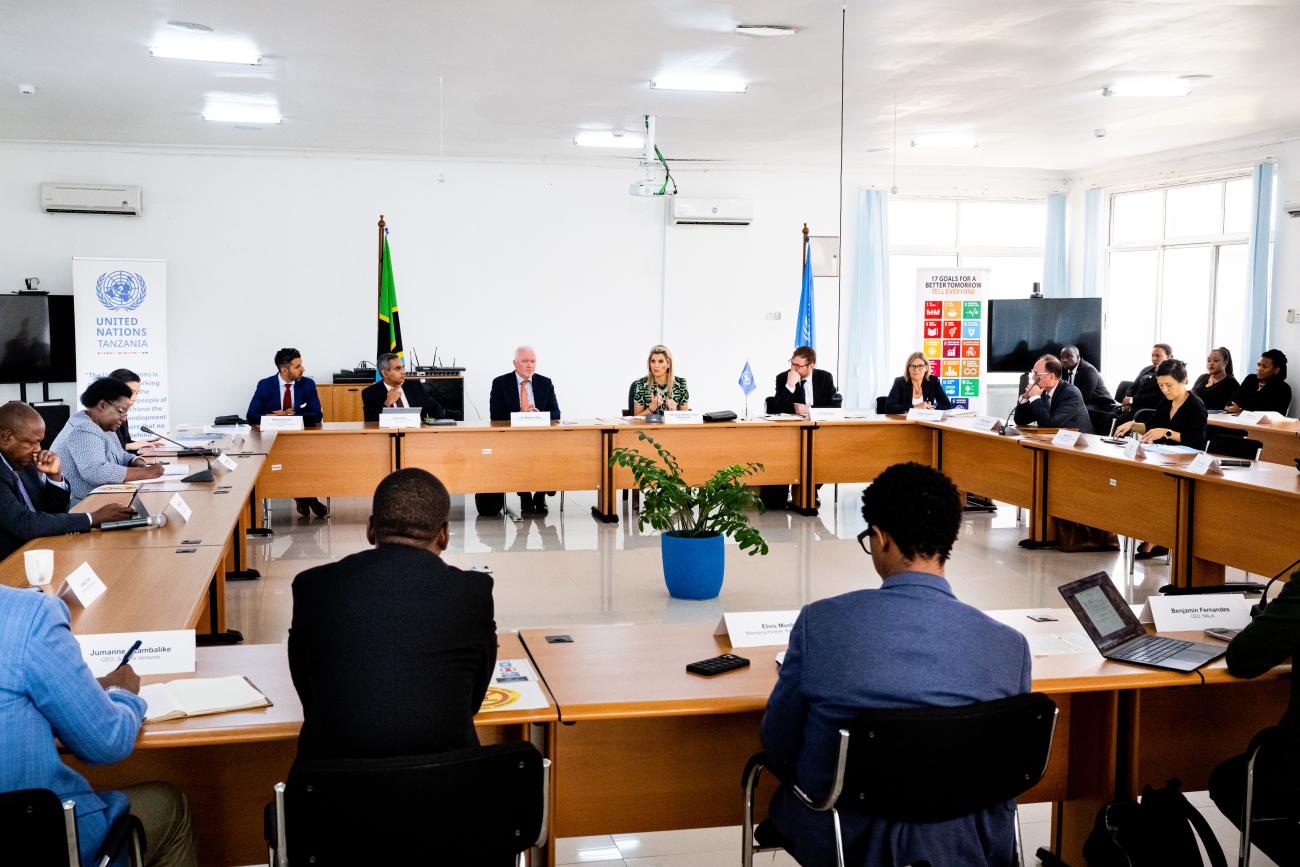
Financial inclusion has improved significantly in Tanzania over the last decade. According to the latest World Bank Global Findex (2021), the number of financially included adults (aged 15+) has risen substantially from 17% in 2011 to 52% last year. This increase can unlock numerous new economic opportunities for the population.
However, a lot of work remains to reach the 48% of adults in the country still excluded from formal financial services—including a gender gap of 13 percentage points.
To help identify and discuss opportunities for inclusive finance, the UNSGSA visited Tanzania on 18-19 October 2022. While in the country, she met with top government officials, international development partners, and members of the private sector. It represented her third visit to Tanzania as the UNSGSA. Previous visits included April 2010 and December 2013.
The UNSGSA held meetings with President Samia Suluhu Hassan, Bank of Tanzania (BOT) Governor Florens Luoga, Deputy Minister of Finance and Planning Hamad Hassan Chande, and Deputy Minister of Information, Communication and Technology (ICT) Eng Kundo Mathew, among others. She also participated in a fintech roundtable with private sector leaders to explore how innovation can better support digital and financial inclusion.
Additionally, the Special Advocate conducted three field visits between Kilimanjaro and Dar es Salaam, speaking with local customers to hear firsthand how they have benefitted from various financial services and products. These meetings served as an opportunity to witness the potential that digital and financial inclusion possess to transform the lives of many Tanzanians, notably for underserved groups such as the poor, women, smallholder farmers, and small businesses.
Learn more: Client Stories
- Low-Cost Digital Insurance Protects Farmers
- Protecting Women’s Health by Digitally Transforming a System of Care

Key Priorities
In her meetings with President Samia and others, the UNSGSA focused on four key priorities.
1. Digital Financial Infrastructure and Policies
Tanzania has made substantial progress by investing in digital financial infrastructure and policies. However, the UNSGSA and President Samia, among other leaders, discussed how it is key to ensure in that it is inclusive and pro-poor—including connectivity, digital IDs, interoperable and cost-effective payments, digital literacy, and data governance and privacy. One example highlighted in meetings where progress could be made is the promotion of the rapid rollout of a digital national ID number and encouraging regulatory reforms.
2. National Financial Inclusion Framework
Developing and implementing the country’s third National Financial Inclusion Framework could boost innovation, address risks from digital adoption, and increase financial inclusion and resilience. There is an opportunity to ensure coordination across the government and with the private sector as well. Additionally, the UNSGSA offered BOT and the Ministry of Finance the support and collaboration of herself and partners regarding strategy development and coordination for digital financial inclusion.
3. A Fintech Ecosystem that Supports Financial Inclusion
The emergence of a fintech ecosystem that supports financial inclusion could be beneficial to Tanzania. For instance, there is an opportunity to capitalize on innovative fintech to expand use cases and customer-centric approaches to move beyond person-to-person (P2P) and cash-in/cash-out transactions.
In addition, Queen Máxima suggested for leaders to establish an independent fintech association in Tanzania, and the UNSGSA offered support, along with her partners. The Special Advocate also encouraged BOT to boost dialogue with fintechs, as well as to scope creating an innovation office or sandbox to formalize how to best engage with the wider market.
4. Making Mobile Financial Services More Affordable
In her talks, the UNSGSA and her partners discussed with President Samia and other leaders about the importance of understanding the cost drivers and pricing of mobile financial services to ensure affordability especially for low-income households.
UNSGSA Partners
Bill & Melinda Gates Foundation, Consultative Group to Assist the Poor (CGAP), United Nations Capital Development Fund (UNCDF), and the World Bank Group.
